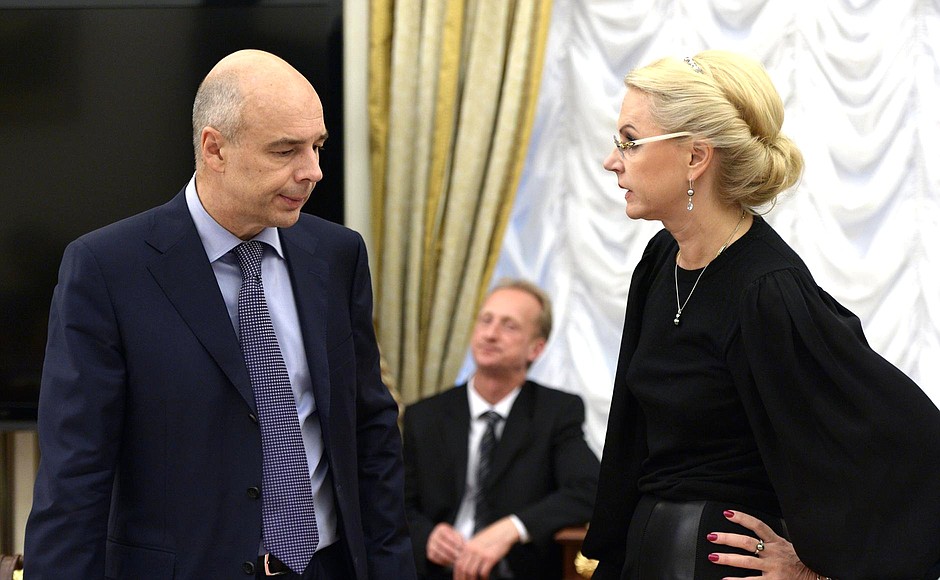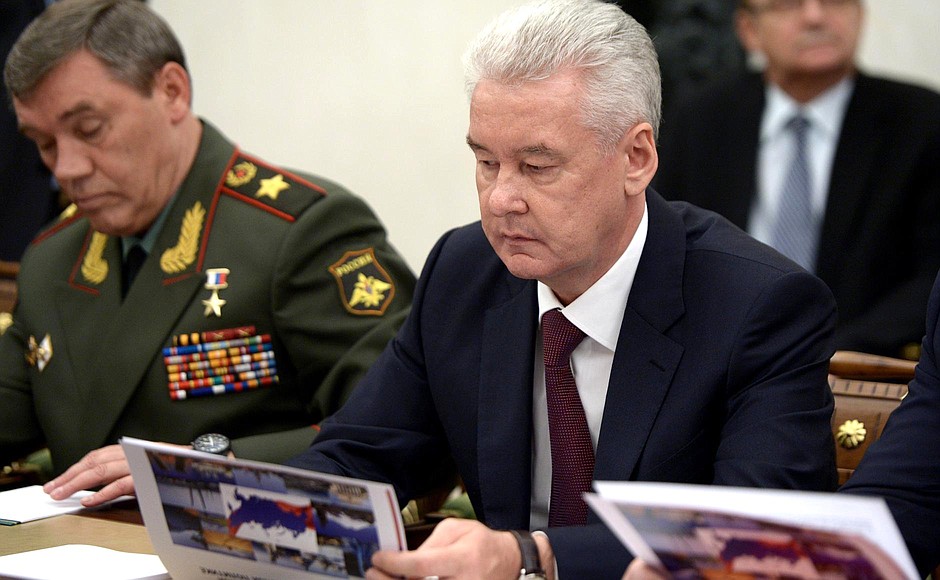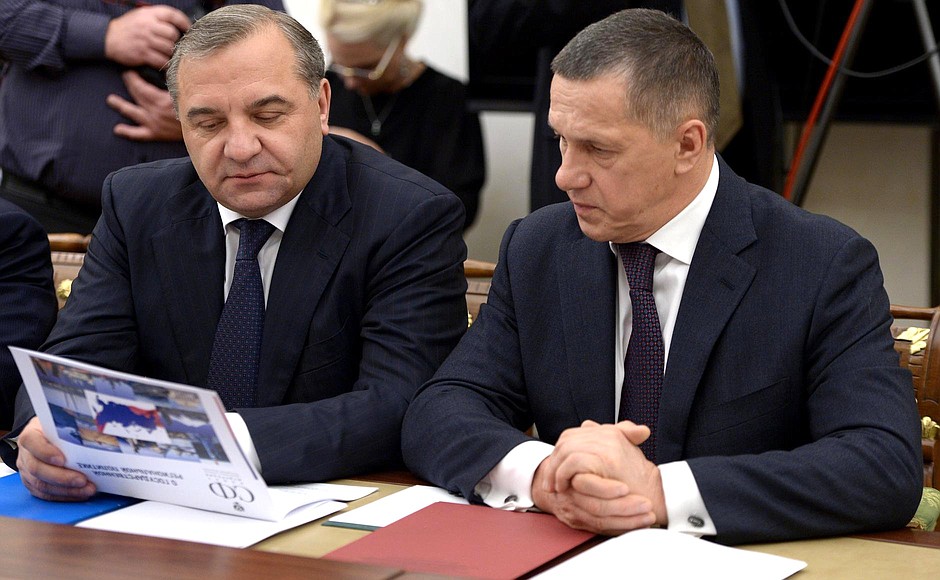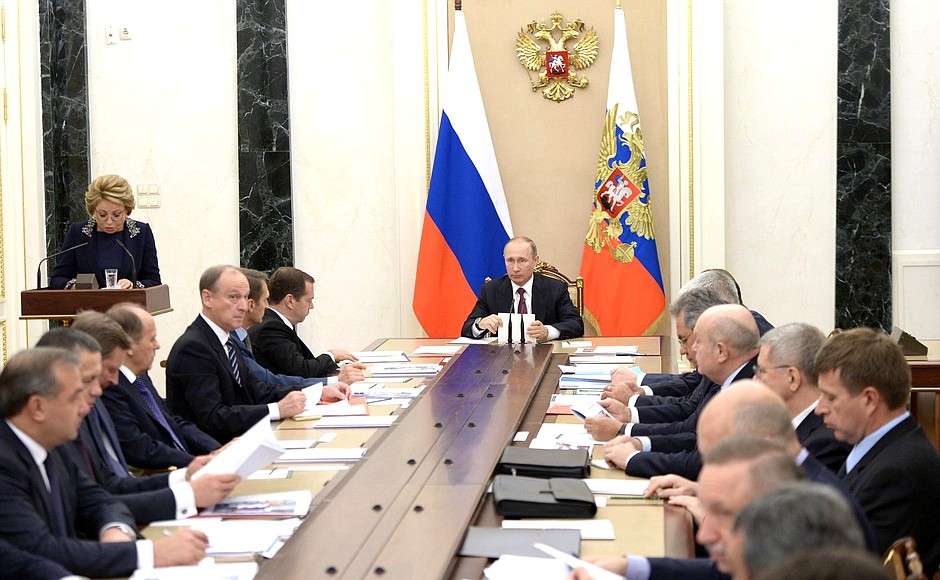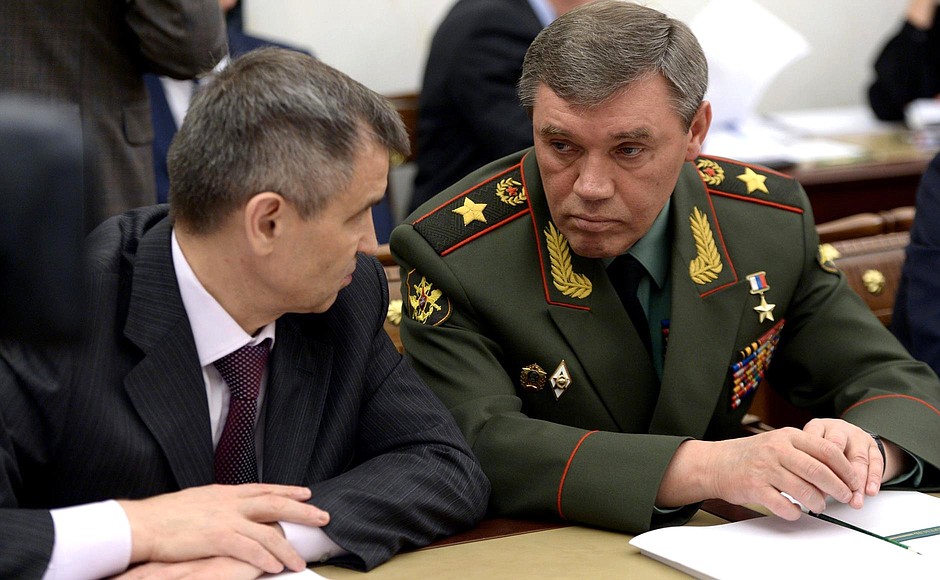President of Russia Vladimir Putin: Good afternoon, colleagues,
Today we will look at regional policy, which is a key governance issue. We will look into ways of improving it and making it more efficient, as well as removing obstacles that stand in the way of dynamic growth in the Russian regions.
The main goals and objectives in this area were identified in the Fundamental Provisions of Regional Policy in Russia approved more than 20 years ago. The implementation of that document helped consolidate our country's territorial integrity, Russia’s unity, and to streamline the relations between different levels of government and the territorial organisation.
The federal and regional targeted programmes have become more effective and to the point, which allowed us to resolve many economic, infrastructural and social problems.
I would like to note that the Gross Regional Product (GRP) also increased substantially: 25 times from 2.2 trillion in 1998 to 58.7 trillion rubles in 2014. The demographic situation has markedly improved. The population base and life expectancy have been growing since 2009. Thus, average life expectancy in Russia amounted to 64 years in 1995 and increased to 71 years in 2015. The infant mortality rate per thousand decreased from 18 in 1994 to 6.5 in 2015.
The Government created and launched mechanisms for encouraging the priority development of the Far East, Russia’s Arctic, the North Caucasus and later on Crimea and the Kaliningrad Region, which play a special role in safekeeping our national interests and security.
At the same time, the process of forming a solid system of federal relations and efficient local self-government has not yet been completed.
The risks related to the imbalance of the budget system and disproportions in territorial development and the labour market are still there. There are still many problems in education, healthcare and culture. Meanwhile, we all understand that these areas ensure the integrity of the country’s socio-economic space, not to mention that their condition, just as that of the economy, exerts a direct influence on the social wellbeing of the population.
The difference in the economic development of the regions is still tangible and the trend towards drawing the economy into the country’s central regions has not yet been overcome. This leads to disproportions in budget allocations, and, hence, to a gap in the level of incomes and social guarantees of the people living in different regions of the Russian Federation.
These indicators fluctuate even within the same federal district. The aggregate incomes of the five wealthiest regions are 43 times higher than the poorest regions. While comparing the wealthiest region to the poorest one – I would not even want to go there; it is hundreds of times higher.
Obviously, we need to specify the current regional policy priorities and tasks. With this aim in view, the Government has elaborated a draft basis for Russia’s regional development policy to 2025, which we will discuss today.
I would like to draw your attention to several important points. First, it is important to identify in the new document the economic mechanisms that will help us more fully realise the industrial, scientific and technological, educational and entrepreneurial potential of the regions, and use their competitive advantages in a flexible way, to create new growth areas and thus ensure additional revenue streams to the budget. Only such an approach will help us to reduce the socioeconomic differences between our regions, and to create proper conditions for improving the quality of life across Russia.
Secondly, we need to improve budget-to-budget relations, to achieve steady financial support for the regional and municipal authorities.
The regions and the municipalities must balance their budgets properly. It is imperative to more efficiently use fiscal tools in order to facilitate economic growth and to boost gross regional product.
In turn, at the federal level, it is necessary to improve the system of targeted subsidies and grants, and to monitor and analyse how effectively they are used by the regions. Of course, it is important to offer solutions that will enhance the independence of the regions and municipalities as they expand their taxable revenue base.
In general, budget-to-budget relations are among the key issues. We will consider it at a separate meeting with representatives of the Government and the regions.
Next, it is imperative to ensure that there is coordination between the federal and regional programmes that are designed to develop the territories. Of course, this applies to the investment plans of state-owned companies and major private companies. In other words, all the funds raised for a particular project should be concentrated in order to create synergy.
Let us discuss all of these issues.
<…>
